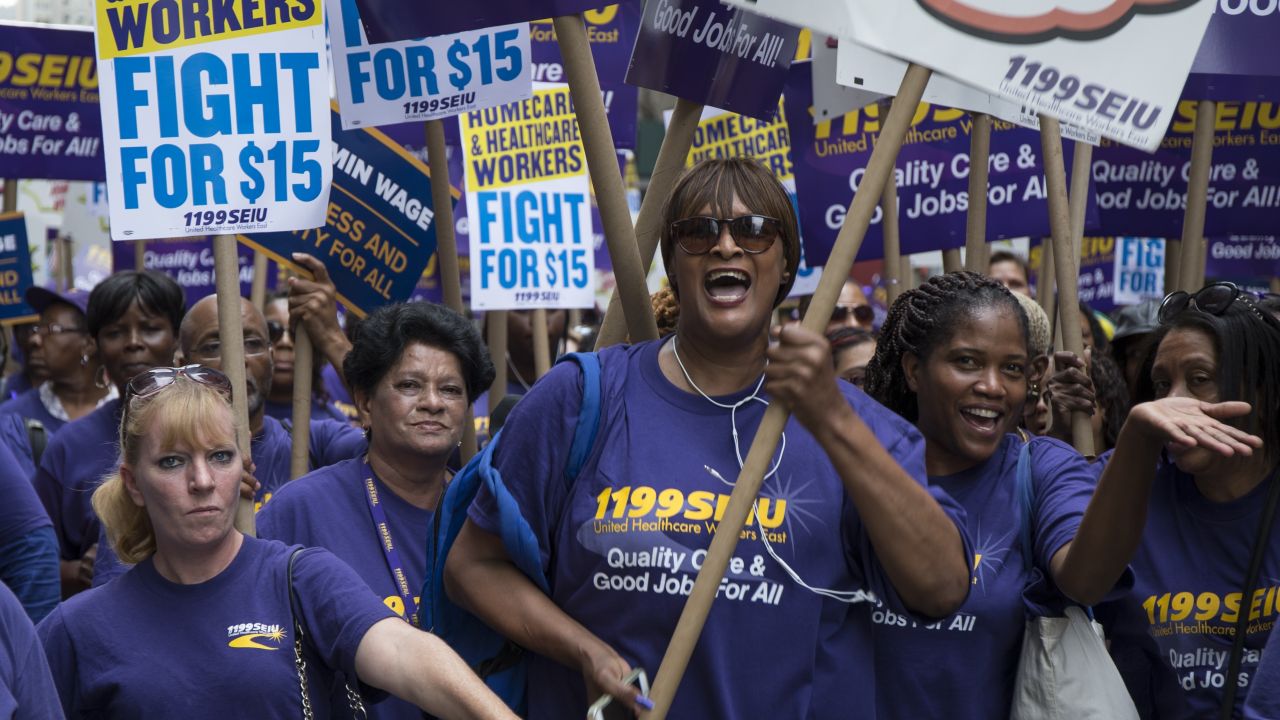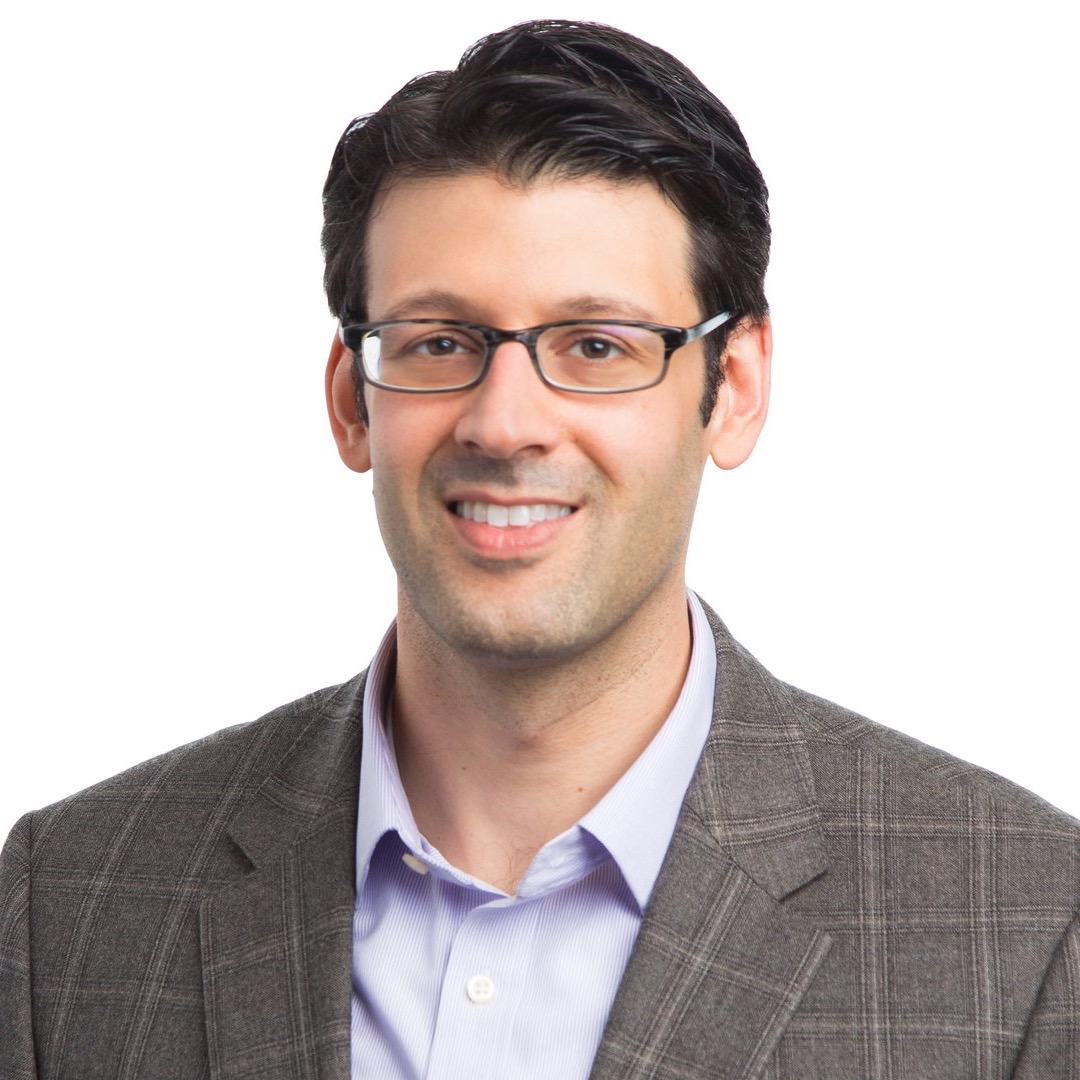
Labor Day parades used to mark the beginning of the campaign season. (Photo by Bilgin S. Sasmaz/Anadolu Agency/Getty Images)
Once upon a time, in a faraway land called America, Labor Day marked the traditional start of campaign season. Selected by their respective parties’ summer nominating conventions, the presidential candidates would then barnstorm the country for three months — a reasonable time for the electorate to evaluate their personalities and platforms. And then it would be over, until about four years later.
It seems hard to imagine today. Hillary Clinton has been a declared candidate since March 2015. Donald Trump has been a declared candidate since June 2015, which actually made him one of the later entrants into the Republican field. And, of course, many candidates start running long before they make their intentions official.
In almost all other advanced democracies, the official campaign season is short — a few weeks, at most two months. Not here. Here we spend endless news cycles obsessing over every last thing our candidates say. And good luck trying to escape the advertisements. American politics, it is often remarked, has become a permanent campaign.
This has five harmful consequences for American democracy.
1. Wretched excess
The first is the ginormous cost associated with running these endless elections. With each passing electoral cycle, it increases The price tag for the 2012 election was more than $6 billion, making it yet again the most expensive election ever. There’s every reason to think 2016 will cost even more.
This high price makes both parties and candidates more reliant on wealthy donors to fund these elections, since they’re the ones with the money. This limits the types of policies the parties and candidates are willing to pursue, since they need to appeal to these donors to fund their campaigns. It also limits the types of candidates able to run for office in the first place to those whose networks put them in contact with lots of wealthy donors, and those whose policy positions don’t scare these wealthy donors away.
2. Polarization
The second problem is that the hyper-partisan marathon privileges campaigning over governing, which in turn privileges the “uncompromising mindset” over the “compromising mindset.” I borrow these terms from political scientists Amy Gutmann and Dennis Thompson, who write about this problem in The Spirit of Compromise: Why Governing Demands It and Campaigning Undermines It. As Gutmann and Thompson explain it, the uncompromising mindset is the mindset of the modern campaign, which “favors candidates who stand firmly on their positions.” The uncompromising mindset of campaigning encourages what Gutmann and Thompson call “principled tenacity” (fighting hard for moral principles) and “mutual mistrust” (“the assumption that their opponents are motivated mainly by a desire to defeat them and their principles.”). Such principles obviously stand in the way of governing. Similarly, political scientist Frances E. Lee’s new book, Insecure Majorities: Congress and the Perpetual Campaign, describes in painstaking detail how this endless focus on winning the next election has driven polarization in Congress. In short: a very long campaign makes for more divisive and unproductive governing.
3. Knee-jerk negativity
Third, while some scrutiny of candidates is obviously a public good, the entire election has became an exercise in negative campaigning. Candidates now mostly tear each other down. And to fill the endless time, the media attempts investigation after investigation, unable to distinguish the truly valuable scrutiny from the desperate desire to have something new to say. It’s no wonder we hate our candidates. A long election season just gives us time to tear every piece of them down.
4. Fear of loathing
Fourth, as a consequence of the first three points, it takes a certain type of person (i.e., a crazy person) to be willing to endure the endless slog of running for office. It’s not just the fundraising, not just the endless press scrutiny and negative attack ads and subjection of one’s family to it all, not just the endless campaigning that sacrifices all nuance and compromise to a need for crisp, consistent sound bites. It’s all three, plus the ability to go from event to event to event, from debate to debate to debate, from interview to interview to interview, all while smiling and staying on message. It’s a gauntlet that tells any sane person in bold letters, and all caps: DO NOT APPLY.
5. Ennui
Fifth, and finally, is the problem of voter fatigue. A short election season is exciting. If you know it’s limited, you know it’s time to pay attention now, this won’t last long. It becomes a ritual. The Olympics were buzzy because they lasted for a limited time, and then they were gone. If the Olympics had started last March and were still going on, most people would have grown bored and tired of them, and probably cynical. So it’s no surprise that’s how most people feel about politics. Not everyone is a political junkie.
To be fair, there are some plusses to a long election season. Being president of the United States is a pretty important job, and a long campaign season helps voters really get to know who the candidates are, and how they withstand various pressures. A long election season seems to have especially worn away support for Donald Trump.
The United States also has a longer election season because it is unique in its system of primary elections, which give voters a more direct say in picking their candidates. In almost every other advanced democracy, candidates are simply nominated at closed party conventions. While it has become fashionable this election season to long for the days in which American parties just selected their candidates in smoke-filled rooms of conventions, it’s also important to at least appreciate the uniquely democratic opportunities American citizens have in selecting candidates — though admittedly the role of money in even getting candidates to being able to run has undermined some of those opportunities.
However, neither of these concerns demand the election season be quite as long as it is. Three months would be plenty of time to accomplish both of these things.
Certainly, there are many forces pushing for long elections. There is an entire campaign consulting industrial complex that depends on the long election season, and has every incentive to keep fueling the arms race of earlier starts and costlier and costlier campaigns. And there is also an entire media industry that thrives on it, both because of the ratings and the advertising dollars.
How might we change it? Perhaps candidates could decide to start running later — but this seems unlikely. Perhaps the most direct solution would be to enact campaign finance reforms that made it harder for campaigns to effortlessly raise endless sums of money. With less money to fund them, campaigns simply couldn’t go on as long. They’d have to start later. And American democracy would almost certainly be better off as a result.




